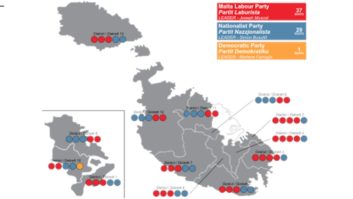BIRKIRARA, Malta — Malta’s liberalization of the airwaves in the early ’90s did not necessarily mean a liberalization of ideas. Although the consequent advent of the new private stations and increased competition triggered the emergence of new styles and innovation.
Yes, while most stations here are fitted with top-notch studios and equipment, the same cannot be said about their programing. In what has habitually been considered as a staunchly Catholic country, certain topics and methods of discussion have been slow in the taking. Not that there haven’t been previous attempts to break the mold. Taboo subjects like divorce, homosexuality and sex have up until recently mainly been treated in a very generic way, often hardly scratching the surface and making sure, perhaps fairly, there was the moral guru next on the panel to contribute his or her view on the topic at hand.

Maltese radio however has taken a more open route lately with the introduction of a new English-Language radio program on XFM 100.2 MHz with the not so subtle title of “Let’s Talk about Sex.” LTAS hit the airwaves in April and deals with “sex, relationships and anything in between.”
According to the station, the idea for this “risqué” talk show “stemmed from the seemingly lack of information about the subject in local media.” XFM says it’s addressing this lack of information and taking a more avant-garde approach by deciding to launch this program.
[Read: IRF Makes its Way to Malta]
Melanie Kelly is LTAS presenter and has been active in the Maltese Radio and TV scene for the past 11 years. During the program each week she invites experts and guests into the studio to share their knowledge and shed light on issues such as monogamy, infidelity, love and desire — topics a majority of Maltese would traditionally consider taboo.
But things are apparently changing. With Malta’s fast-growing economy, the influx of thousands of young workers from all over Europe and other parts of the world has undoubtedly further nurtured this need for an innovative approach.










